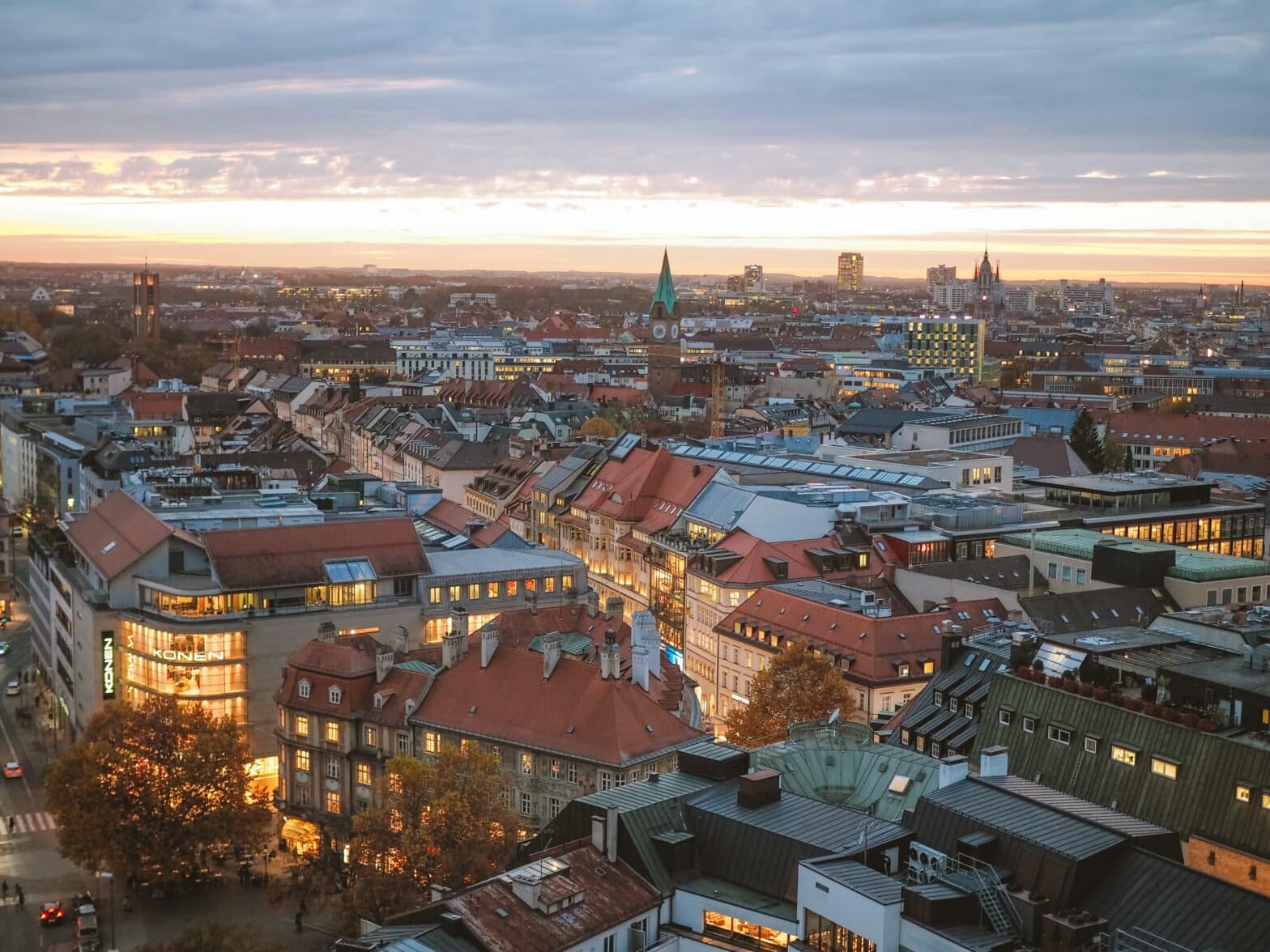If you are going to Germany as an expat, you need to think about a few things in advance – for example, international health insurance. We have summarized the most important points for you and we are guaranteed to have the right offer for an international health insurance ready!
Germany – a popular destination for expats
Germany is a popular destination for expats from all over the world due to its cultural diversity, vibrant cities and beautiful nature. Whether it’s Berlin with its lively and cosmopolitan charm, Munich with its blend of cosmopolitan sophistication and tradition, the bustling financial metropolis of Frankfurt, Hamburg with its maritime ambience, or smaller, picturesque cities like Heidelberg or Lübeck, the opportunities and offerings in Germany are extremely wide-ranging. If you are planning to move to Germany, there are a few things you should find out about in advance, and we’d like to go into a little more detail.



Are you interested in the other German-speaking countries in Europe? We have also compiled the most important information about Switzerland for you.
The cost of living
Let’s get straight to the most important point – how much money you should budget per month for your new life in Germany? The budget required depends primarily on the city you choose.
Good to know: The most expensive cities in Germany
The most expensive place to live is Munich: here, rental and real estate prices as well as prices for food, leisure activities and other living costs are above the national average. The cost of living are also high in cities such as Frankfurt am Main, Stuttgart, Hamburg, Düsseldorf, Cologne and the German capital Berlin. By contrast, living costs are significantly lower in Chemnitz, Zwickau, Cottbus, Wilhelmshaven and Gelsenkirchen.
Labor market – how to find a new job
In April 2023, the unemployment rate in Germany was 5.7%. Many sectors are looking for qualified personnel and you can already find a job from abroad. For some professions, there is a fast-track procedure for obtaining work and residence permits. These days, the Internet is the best place to find a new job.
Renting an apartment
The crucial question in any move is that of accommodation. In the previous paragraph, we explained which cities are the most expensive to live in. In these cities, the search for suitable accommodation is often difficult, particularly in inner-city areas. Appointments with real estate agents can turn into real gatherings. First of all, find out online about rental rates in different cities, which can vary considerably depending on the area. To obtain an apartment, you will need a lot of proof and documentation. Landlords generally require proof of income and a rent-free certificate.
What else you should pay attention to
The transport
Germany has a very well-developed transportation network – this also applies to public transportation. Especially in large cities, a monthly or annual ticket for the subway, bus and streetcar is essential. Find out about offers and prices in advance. In Berlin and other cities where there are many kilometers to cover every day, an annual pass is a great cost-saver.

The language

Most of the German population speaks English. So, if your German skills are still very limited, you don’t need to worry about communication. However, it is strongly recommended that expats learn the local language!
The German school system
Compulsory schooling in Germany begins at the age of six. Before that, parents are entitled to childcare provided by various providers such as kindergartens, child minders and daycare centers. Children attend elementary school until age 10 (in some federal states up to the age of 12).
The secondary school system (grades 5 to 13) is marked by division in Germany, as pupils are assigned to different schools offering academic or vocational qualifications.

Health Insurance
Last but not least, we come to one of the essential points of your stay abroad: health insurance. International health insurance is recommended for any stay longer than three months. While some would argue that standard travel insurance should suffice, international health insurance offers much better overall protection. That’s where Foyer Global Health comes in, because with us, you’re insured without geographical or time limits… always and everywhere. This is not only interesting for digital nomads. Visit our website and find the right offer for your stay abroad and your travels in Germany. On our website, you can find the insurance solution that exactly matches your situation and profile, whether you’re traveling alone, as a couple or as a family.
Checklist for expats
If you’re still at the thinking stage, we’d like to provide you with a list of points you should pay attention to. With the right research, your move to Germany will go much more smoothly, and you won’t be faced with any nasty surprises (e.g. bureaucratic problems).
- Visas and residence permits: These vary greatly from country to country. Familiarize yourself in advance with the respective regulations.
- Take a close look at your financial situation and get an overview of the cost of living, rent prices and other costs.
- Before you leave for another country, make sure you have settled all your financial affairs in your home country. Are there any outstanding debts or tax obligations? Decide who needs to be informed of your move and what, if anything, needs to be settled in advance
- Use comparison and rental portals – both for information and to find accommodation.
- Talk to other expats. Those who have already made the move to Germany can give you valuable advice and warn you of possible obstacles and difficulties.
Choose the best health insurance abroad and, with Foyer Global Health, find the comprehensive cover you need to enjoy your stay in Germany with peace of mind!
